The massacre in Bentiu, South Sudan, has shaken even hardened humanitarian workers. The UN's development and humanitarian coordinator, Toby Lanzer, called it perhaps the most shocking circumstances he had faced. Civilians were killed in the town's main hospital, in a Catholic church and in the Kali-Ballee mosque. A week after the fighting, bodies still litter the streets.
The rebels who retook Bentiu on 15 April are accused of killing hundreds of people. The UN says militants targeted their victims based on ethnicity and nationality. The rebels, who are largely from the Nuer ethnic group, allegedly killed non-Nuers, and Nuers who they believed did not support them. They are also accused of killing many Sudanese, in particular traders from Darfur.
The rebels' official line is that they did not carry out the massacre. However, one source admitted that civilians had indeed been killed by anti-government forces. He claimed that many of the Sudanese were soldiers from the Justice and Equality Movement (JEM), a rebel group from Darfur accused of supporting the South Sudanese government. According to his version of events, JEM fighters removed their uniforms and hid in the mosque, before being shot. A Sudanese human rights group has rejected this claim, saying those killed were unarmed civilians.
The Bentiu massacre is not the first in this civil war. Government troops killed Nuer and other supposed supporters of the rebel leader, Riek Machar, in the initial days of the conflict; the rebels carried out mass killings in Bor and Malakal; and armed civilians attacked a UN base last week, killing at least 48 people. An African Union inquiry into the abuses in South Sudan has been launched, but it has not scared either side enough to halt further atrocities.
In the short term, humanitarian workers are struggling to deal with the challenges in Bentiu. More than 200 wounded people are being treated, mainly for gunshot wounds, and there are likely to be others who remain out of reach of medical care.
There are about 23,000 people seeking shelter in the desperately overcrowded UN base a short drive to the north of town. It was not designed to accommodate displaced people, let alone so many of them. Water is in short supply, with internally displaced people receiving only a litre of safe drinking water a day.
There is one latrine for every 350 people – the international norm is one for every 20 users. According to the head of the UN children's agency in South Sudan, Jonathan Veitch: "Those who survived horrendous violence now face the very real risk of fatal water-borne disease outbreak."
It is feared that thousands more people could arrive in the next few days. In Bentiu, as in other war-affected parts of the country, development has been abandoned in favour of humanitarian work.
The medium-term prognosis is even more worrying. The fighting has created two major problems for a country that was already struggling to feed itself before the war broke out. "Because of the insecurity, the supply to different parts of the country, especially Upper Nile, Unity and Jonglei [the main areas the rebels are fighting in] is almost impossible," warned Raphael Gorgeu, head of mission for the medical charity Médicins Sans Frontières in South Sudan. "The markets are empty. And secondly, parts of population may not be able to plant crops' because of the fighting."
Every year, people in South Sudan struggle through the hunger gap – the period when they wait for crops to grow. This year the food shortage will be more acute and the gap a chasm. An estimated 7 million people – about 70% of the population – are at risk of severe food insecurity. Malnutrition rates in many areas have skyrocketed, prompting Oxfam and 21 similar agencies to call for a "massive injection" of emergency aid.
An international donors conference in Oslo, Norway, on 20 May will give some indication of whether these increasingly urgent pleas will be heard. However, this desperate situation will continue to deteriorate until the government and the rebels are committed to lasting peace.
Peace talks, in Ethiopia, have made little progress and remain paused. Both sides have broken the ceasefire deal they signed in January, in part in the hope that military victories will lead to a stronger hand at the negotiating table. The suspicion is that the fighting will continue at its current murderous pitch until at least the rainy season. When the downpours start it will become difficult for people to move freely. If the war continues in the same vein, Bentiu will not be the last massacre in South Sudan.
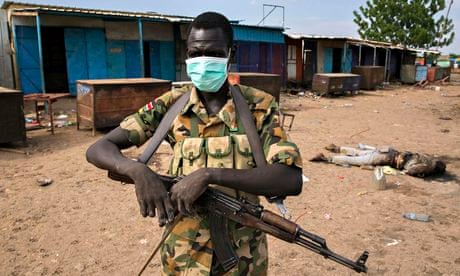
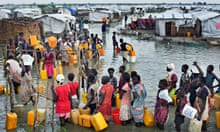
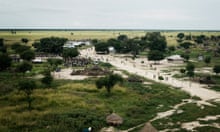
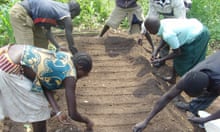

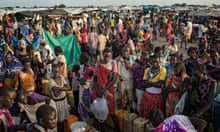
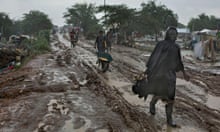
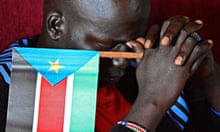
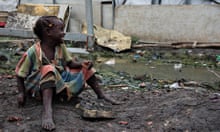
Comments (…)
Sign in or create your Guardian account to join the discussion